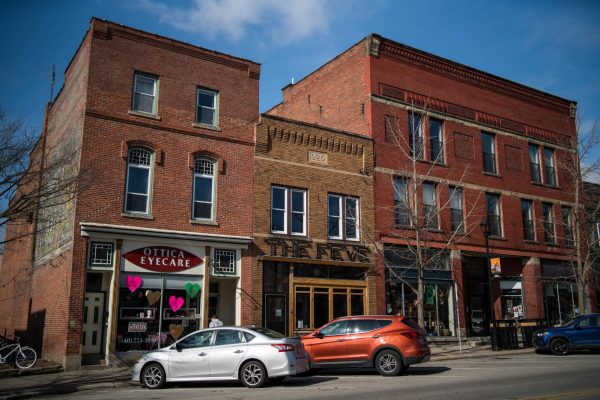City Addresses Community Equity Needs Through Social Equity Working Group
The City of Oberlin, under the leadership of City Manager Rob Hillard, launched a Social Equity Working Group in March 2020, to address various equity needs in the Oberlin community. After the initial research and data collection phase, the project is now turning its focus to specific actions that will address areas of inequity in Oberlin.
Currently, subgroups under the overarching working group are transitioning into phase two of the project — Education, Awareness, and Feedback. The new phase will involve designing action steps based on recommendations from community outreach. Ultimately, the City hopes to create a new position of social equity coordinator, which, if approved by City Council, will focus on implementing the recommendations systematically.
The working group is composed of three City Council members — Mary Price, Ray English, and Elizabeth Meadows — and 12 community members. Working group members also participate in subgroup meetings, which tackle specific areas of concern such as education in schools, police relationships, environmental sustainability, and healthcare. The subgroups — which cover 13 distinct issues — include 15 more community members.
The various subgroups have been engaged in a thorough research process for a year, after an initial five-month delay due to COVID-19. According to English, who serves on the Economic Opportunity, Police Relationships, Education in Community, and Housing subgroups, the research process has involved interviewing experts, researching existing programs in the surrounding area, and looking at public data.
Hillard stated that the subsequent outreach phase is set to begin at the end of 2021 and will prioritize community feedback.
“It’s critically important that we have a basic understanding [of these issues], but the truth is we need public input, reaction, and feedback to make this an effective document,” he said.
Former business owner and Oberlin resident Sondra Miller, who serves on the Education in Community, Economic Opportunity, and Housing subgroups, says the plan’s timing was ideal.
“This particular project has perfect timing,” Miller said. “There are so many disparities in today’s political climate. There’s a need for everyone — from the LGBTQ+ community, to the disabled, to the Black community — to be treated fairly.”
English was surprised that the City hadn’t acted on issues of social equity earlier.
“Social equity is a part of what has long seemed to be a part of Oberlin’s identity,” English said. “Yet I’ve felt we weren’t paying enough attention to it as a city.”
English also mentioned that Oberlin’s history hasn’t always been progressive, pointing to the example of historic housing discrimination against the City’s Black residents in the 20th century.
“Oberlin talks about its history as progressive,” English said. “But we need ways to discuss Oberlin’s history and come to terms with its reality.”
Miller also sees the social equity plan as a way to spread awareness of the City’s disparities.
“We don’t have to wait until the project is completely finished to start some changes,” Miller said. “Already, with some projects that have been started, it’s making people more aware.”
Before implementing changes, groups will solicit community feedback from focus groups composed of residents who identify as part of a marginalized community, such as gender identity, disability, race, or sexual identity.
The City will also facilitate small steering sessions, surveys, and presentations with a discussion session afterwards to receive feedback from across the community.
“There are parts of the community that may have felt disenfranchised or disengaged and are skeptical of change in the community,” English said. “Others might not see any issue at all in the town. We want to make sure we engage with everybody before we finalize the plan.”
Despite the success the groups have had so far, Miller has also heard some skepticism of the social equity plan.
“Some people had great doubts about the project,” Miller said. “The worst thing that could happen is that you get a whole lot of people who do a whole lot of work, and then a whole lot of nothing happens. And that was the fear of some people until we got into it. But we’ve come to a point where we all feel hopeful that our city manager will do his best to make sure some things happen.”
With broad community support toward the initiative and promising first steps completed, those involved are looking forward to future efforts.
“I’m very grateful for the support of the City Council and the efforts of individuals who are putting endless time into research and education,” Hillard said. “But this is just the beginning. I’m excited for the action steps that will change the lives of our individual citizens.”






